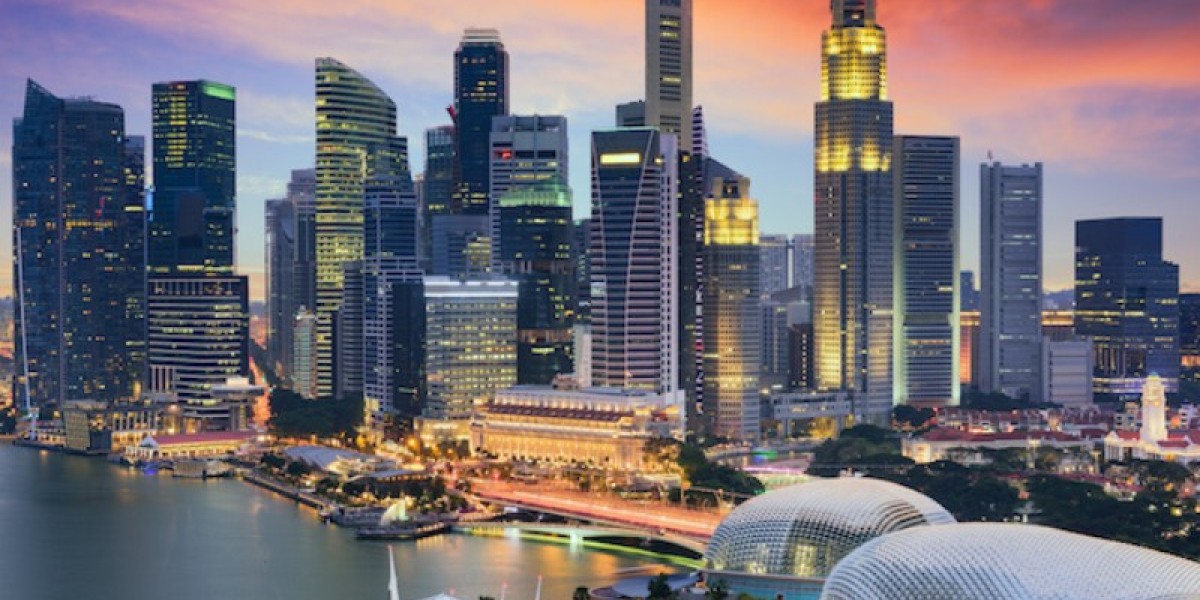Moving to Singapore is an exciting journey—lush green spaces, world-class infrastructure, and a booming economy make it one of Asia’s top destinations for expats. But before you settle in, you’ll need to find a place to live. The city-state offers a range of real estate options, but navigating the market as a newcomer can be a little tricky. Let’s break it down to help you find the perfect home away from home.
Why Singapore Is Ideal for Expats
Singapore ranks consistently among the top cities for expat life. It’s safe, clean, efficient, and full of career opportunities. Its multicultural atmosphere makes it easy to adjust, especially with English being one of the official languages. But when it comes to housing, things can look different from what you're used to—especially if you're coming from the U.S., Europe, or Australia.
Types of Housing Available
As an expat, you’ll typically be choosing between four main types of housing in Singapore:
? HDB Flats: Government-subsidized apartments. While affordable, most expats aren't eligible to rent directly from HDB unless it's through a private owner.
? Condominiums: The most popular choice for expats. These private apartments come with facilities like pools, gyms, and security.
? Landed Properties: Think townhouses, semi-detached, or bungalows. These are more expensive and usually chosen by expats with families or senior-level professionals.
? Serviced Apartments: Fully furnished, flexible leases, and great for short-term stays while you’re getting settled.
Most Popular Neighborhoods for Expats
Where you choose to live depends on your lifestyle and budget. Some top picks include:
? Orchard Road: Upscale and central, ideal if you want luxury living close to shopping and dining.
? East Coast: Relaxed and scenic, with easy access to beaches and great for families.
? Holland Village: A lively mix of expats and locals, perfect for young professionals.
? Bukit Timah: Near top international schools, often favored by expat families.
? Tiong Bahru: Trendy, artsy, and full of heritage charm.
Renting vs. Buying as an Expat
Most expats in Singapore choose to rent because:
Long-term property ownership usually requires Permanent Residency (PR) or citizenship.
Singapore’s property market is expensive and comes with extra costs for foreigners, like the Additional Buyer’s Stamp Duty (ABSD).
However, if you’re planning to stay long-term or gain PR status, buying could be a smart investment. Just be sure to research eligibility and consult a real estate agent familiar with expat buyers.
Rental Costs to Expect
Here's a general idea of monthly rental prices in 2025:
? 1-bedroom condo in central Singapore: SGD $4,000–$6,000
? 3-bedroom condo outside city center: SGD $3,000–$4,500
? Landed property: SGD $8,000 and up
Prices vary based on location, size, and amenities. Most rentals come fully or partially furnished.
What to Know Before Signing a Lease
Some key tips before renting:
? Standard lease term is 1–2 years.
? A security deposit (usually 1 month per year of lease) is required.
? Maintenance responsibilities often fall on the tenant.
? Utilities are typically not included in the rent.
✅ Always inspect the property and get everything in writing before signing.
A local agent can help navigate language or legal barriers, and their fee is usually paid by the landlord (for leases above SGD $3,500/month).
Understanding Singapore’s Real Estate Rules for Foreigners
Buying property in Singapore as a foreigner comes with strict guidelines:
Foreigners can buy condos and apartments but need government approval for landed property.
The ABSD (Additional Buyer’s Stamp Duty) for foreigners is currently 60%—a big jump unless you’re a PR or citizen.
Financing from local banks may require a larger down payment and proof of stable income.
For those renting, rules are much simpler. However, always check if the unit is legally approved for rental.
Working with a Real Estate Agent
A licensed agent can be your best friend in Singapore’s competitive housing market. They can:
Understand your needs and budget
Shortlist suitable properties
Handle negotiations
Review lease agreements
Help with move-in formalities
Make sure your agent is registered with the Council for Estate Agencies (CEA).
Final Tips for Expats
Start your home search early—2 months before arrival is ideal.
Consider your commute to work or schools when choosing a location.
Be prepared for cultural differences in housing size and design.
Use online portals like PropertyGuru, 99.co, and SRX for listings.
Finding a new home in Singapore might feel overwhelming at first, but with the right preparation and guidance, you’ll be unpacking boxes and exploring hawker stalls in no time. Whether you're staying for a few months or several years, Singapore has a space to suit your lifestyle and budget.
If you'd like, I can also add a specific call-to-action, images, or link recommendations for expat property services. Just let me know!
Important Link
How to Buy Your First Home with Bad Credit
How Interest Rates Affect Real Estate Prices
Tampines Street 94 Condo Site Plan
Tampines Street 94 Condo Floor Plans
Tampines Street 94 Condo Project Details
Tampines Street 94 Condo Location
Tampines Street 94 Condo New Launch
Tampines Street 94 Condo Floor Plans
Tampines Street 94 Condo Brochure
Tampines Street 94 Condo Developer
Tampines Street 94 Condo Project Details
Tampines Street 94 Condo Location
Tampines Street 94 Condo Site Plan
Tampines Street 94 Condo Floor Plans






